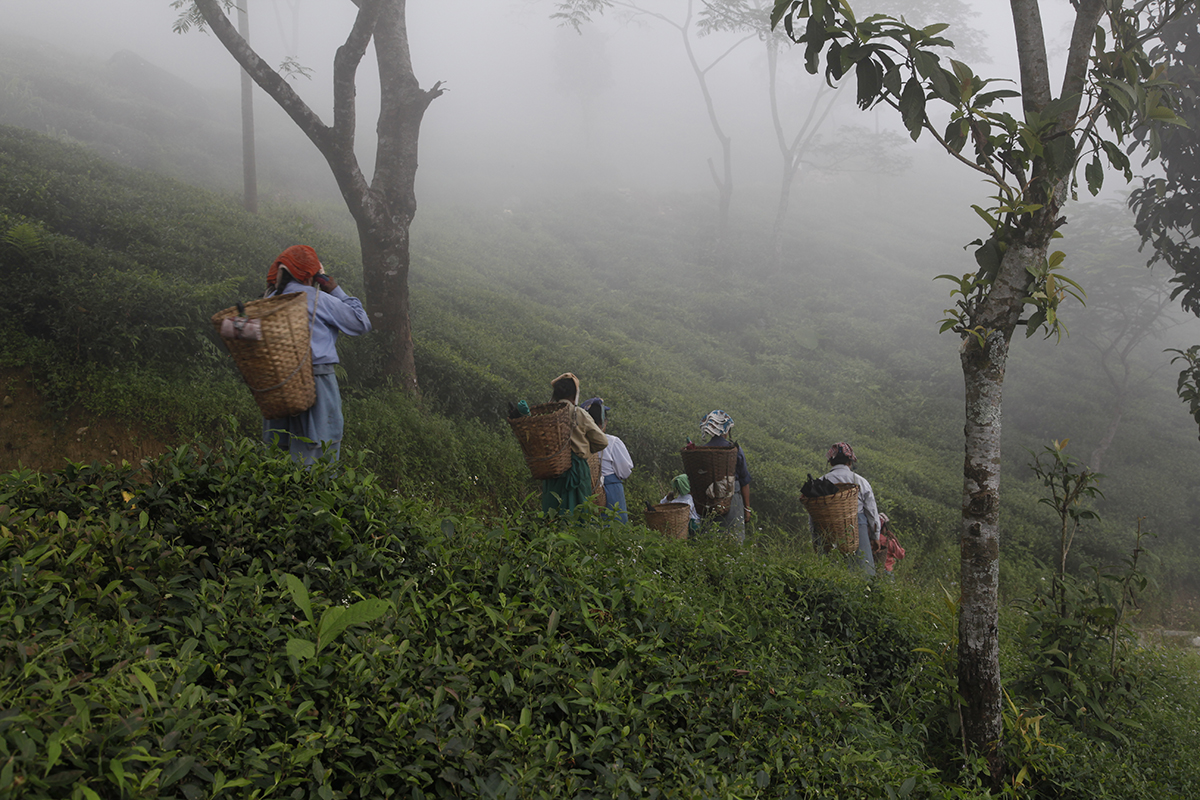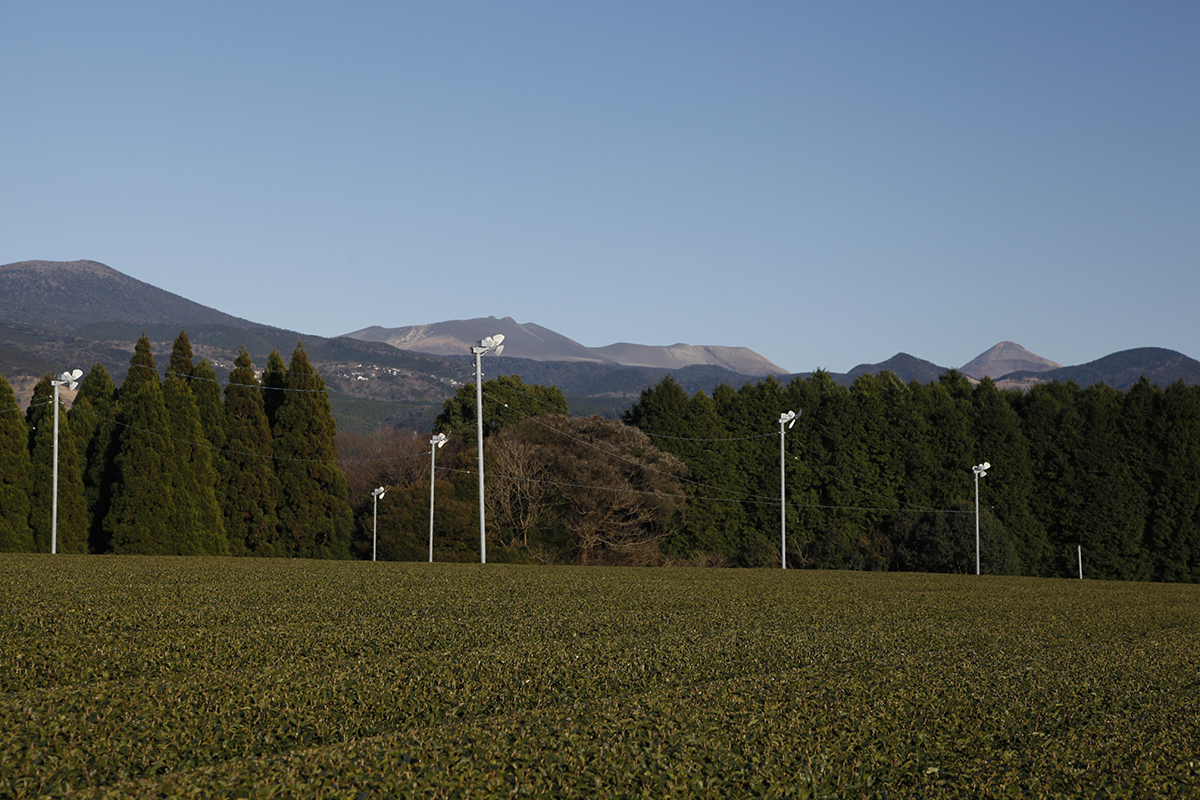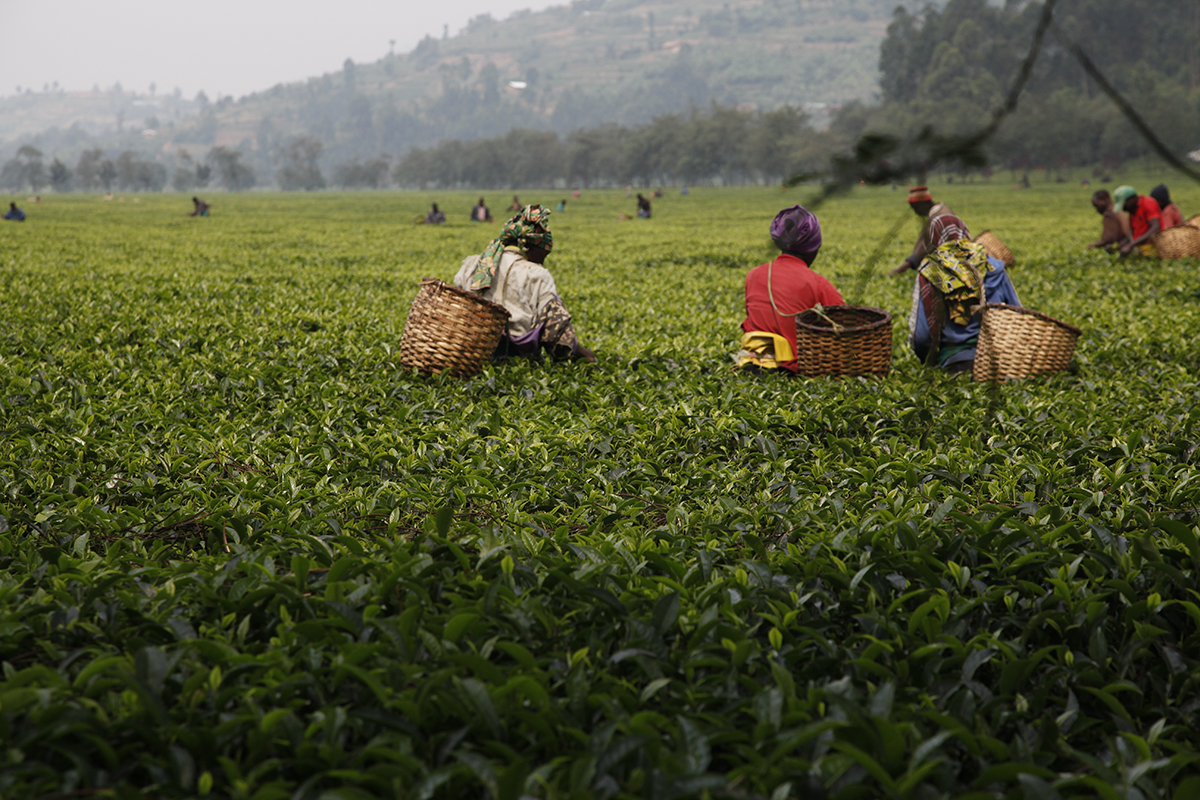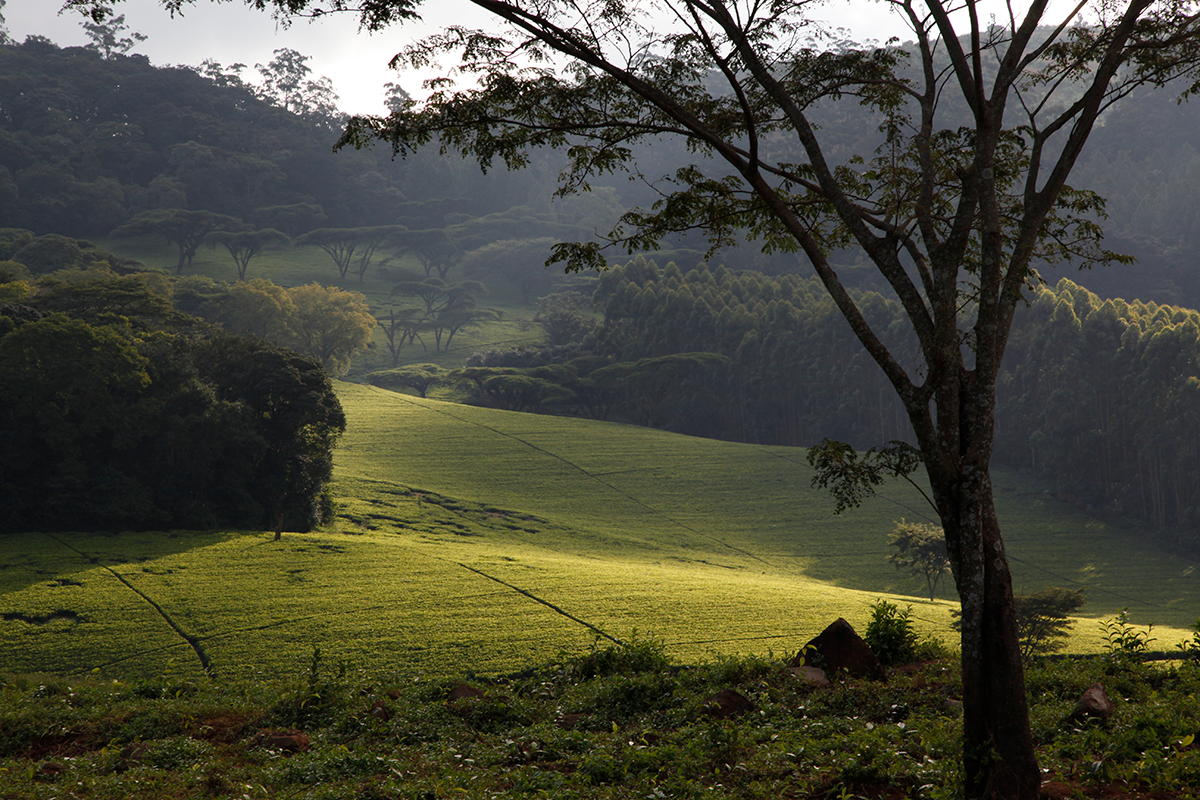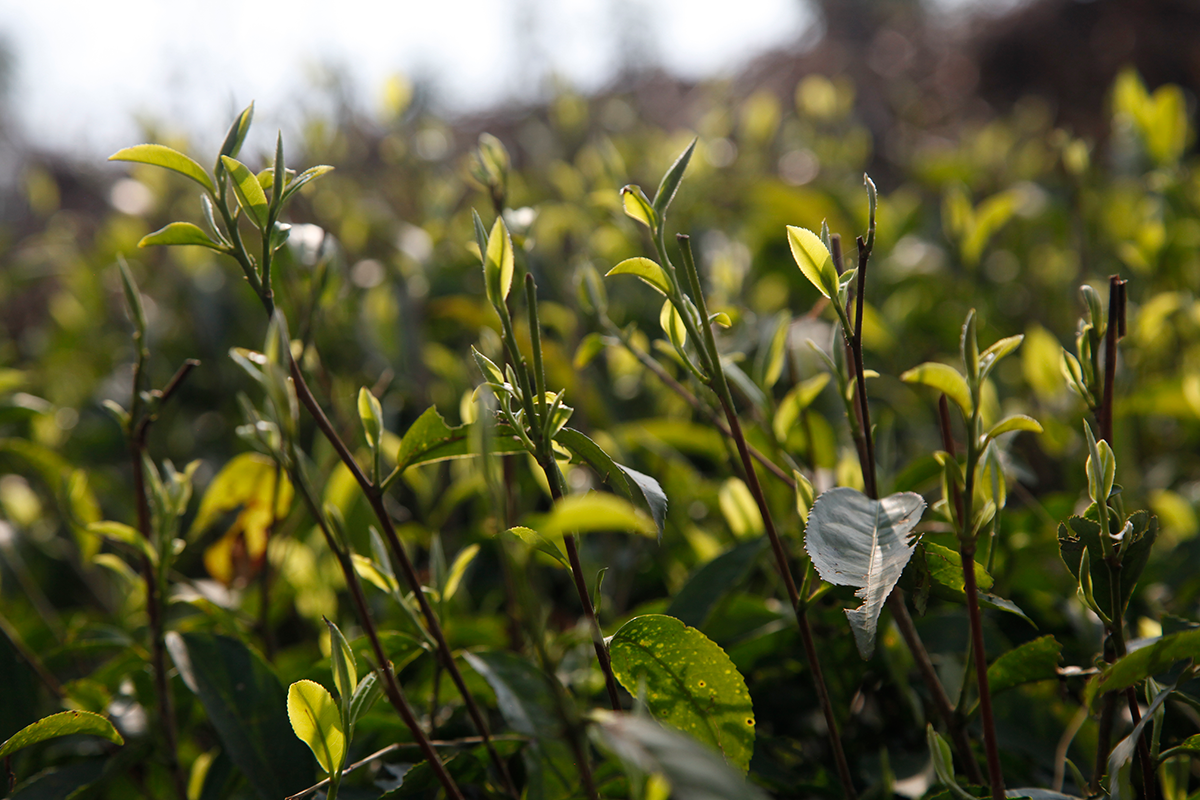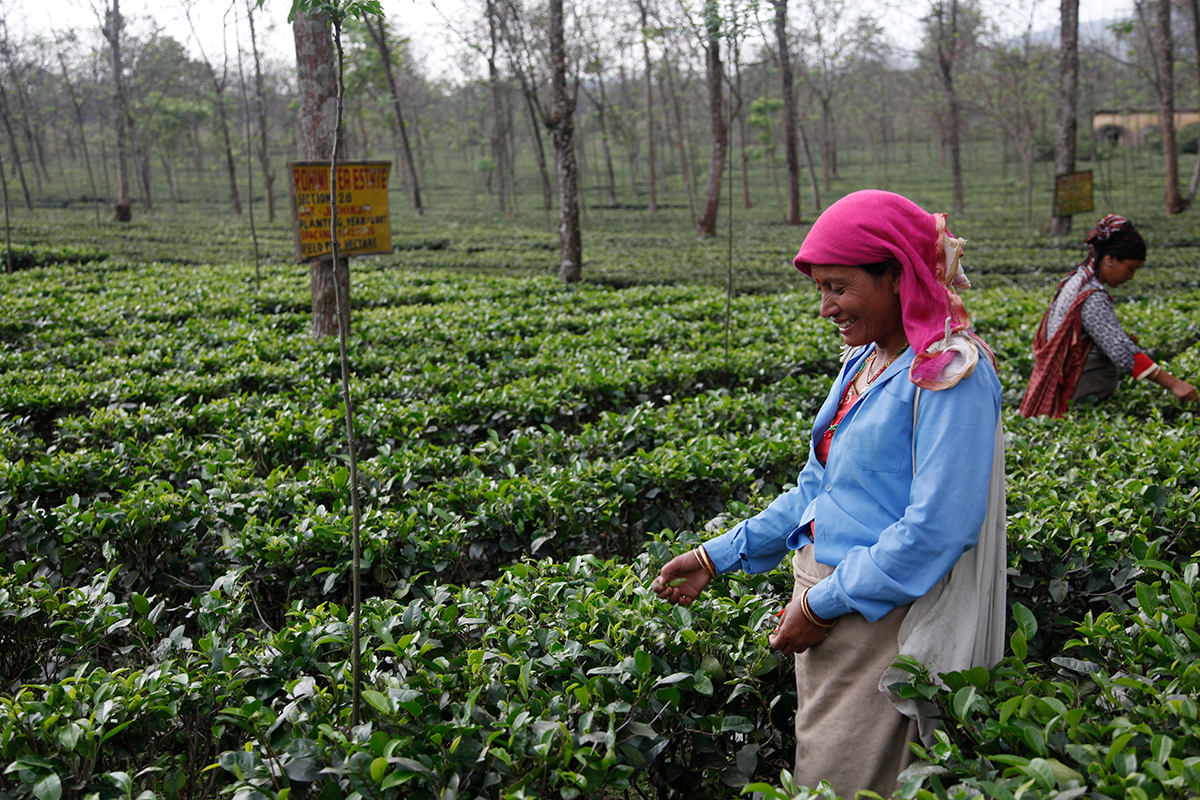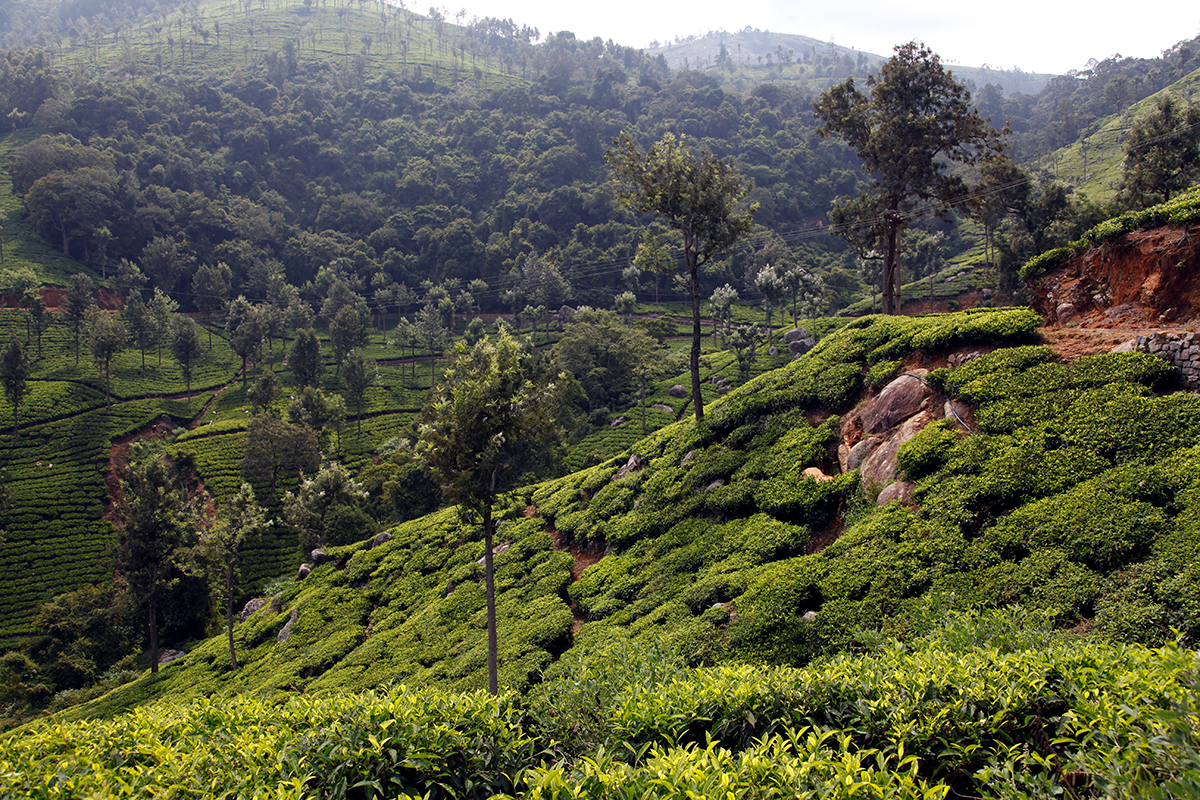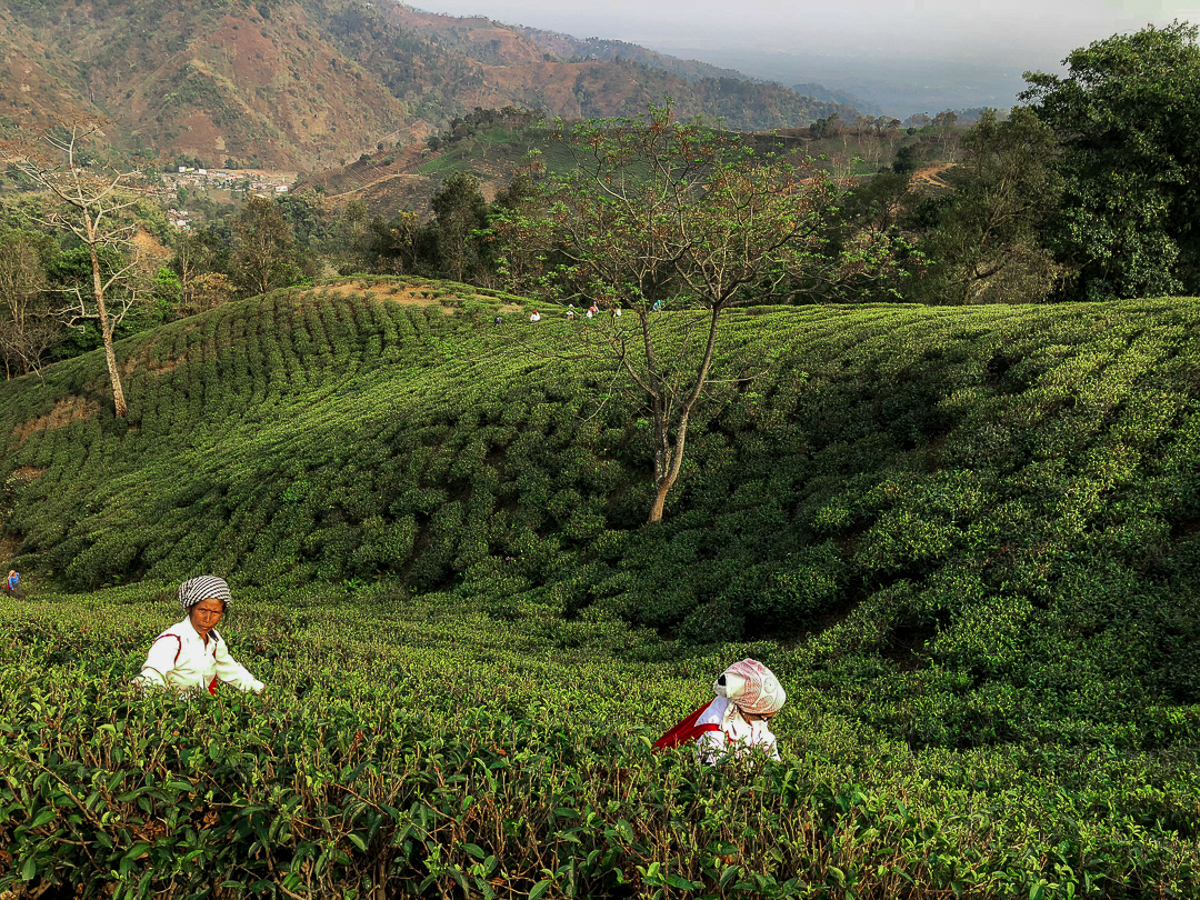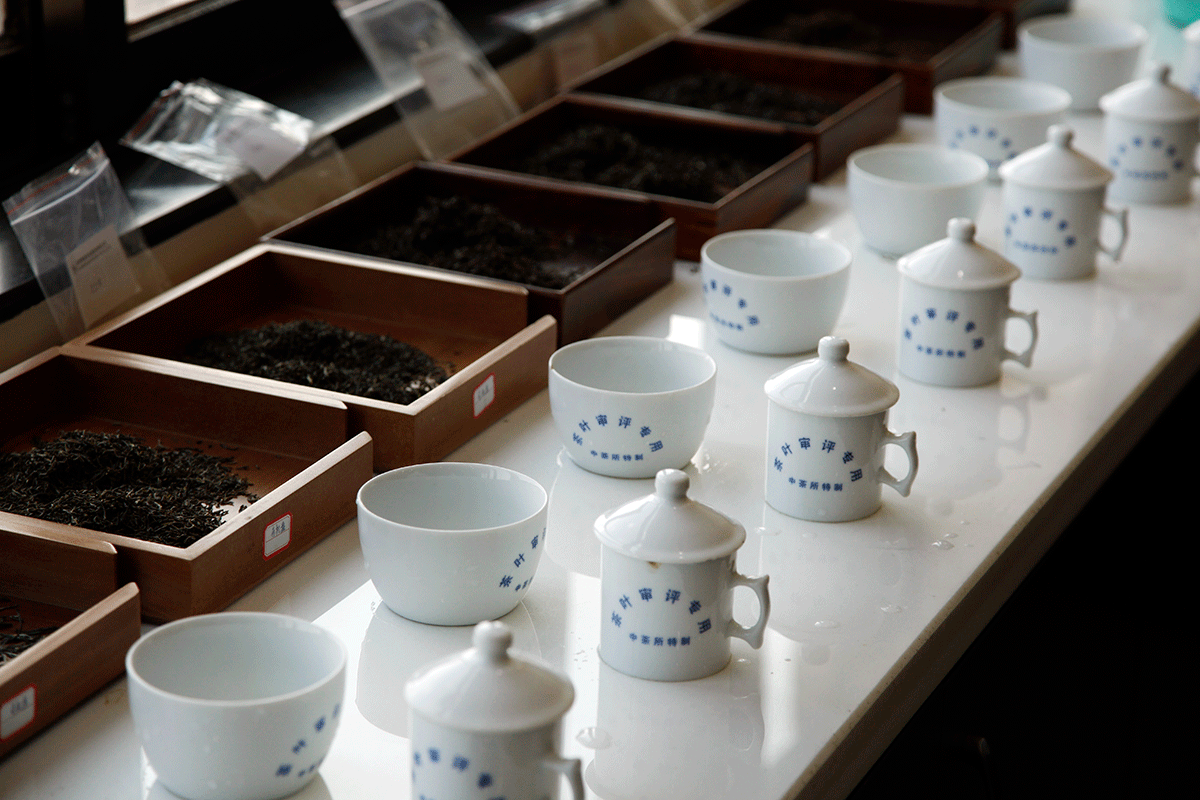By the time you read this, I’ll be with my friend Alex, tasting each of his teas. His Satemwa plantation in Malawi is one of the best in Africa. Not content with making tea for industrial producers, Alex set up different workshops to enable him to experiment – with success. He’s tried all types of processing methods to make semi-oxidised, green, white, fermented, smoked and sculpted teas. Curiosity doesn’t kill the cat; on the contrary, it helps us progress, and Alex is a brilliant example.
From plant to cup
And their children after them
International Tea Day was pronounced by the United Nations to fall on 21 May each year, while other people celebrate it on 15 December. So we have a choice. As far as I’m concerned, every day is tea day. Every morning I wake up and make myself a cup of tea. I make another one in the middle of the morning, then after lunch, and again in the afternoon. It’s always the right time for a tea break as far as I’m concerned. After my evening meal, I sometimes make a small cup of dark tea before going to bed. Between each of these teapot brews, I work. That’s to say, I taste the many tea samples that come in. Dozens and dozens of teas every day, and these I prepare with a tasting set. All this makes up a full day of tea, a lifetime of tea, even.
An international tea day – why not, but for what purpose? A day of tea is good, a day of good tea is better. Good tea harvested and processed by hand. It’s beneficial to promote rare tea if we want to improve people’s lives, if we want to reinforce respectful agricultural practices over time. If we want farmers to live well, we have to buy tea from them at a higher price. It’s not a question of charity, that won’t work, it’s a matter of encouraging them to produce better quality teas. A better quality tea costs ten, twenty, sometimes a hundred times more than an industrial tea, it gives the farmers a much more substantial income, an income that allows them to live well, to stay on their land, and their children after them.
Mr Matsushita’s Shoju tea
The difference between the climate in the north and south of Japan, combined with the cultivars used in the country, some of which are earlier than others, mean the spring teas vary greatly in terms of when they become available. Traditionally, the well-known Japanese Ichibanchas are picked and processed at the start of May. But with global warming and the new cultivars being used by farmers branching out from the traditional Yabukita, some harvests are taking place earlier in the year. For example, Mr Matsushita’s Shoju, produced using an early tea cultivar grown on the island of Tanegashima, in the south of the archipelago, is already available. It has floral, vegetal and iodine notes. A foretaste of open horizons, and a pure delight.
Fortunately
Fortunately, Covid-19 doesn’t stop tea leaves from growing or the harvest from taking place. Samples are reaching us and our taste buds still function, as does our sense of smell. Several of us are able to taste the teas, taking care to protect ourselves. And so, happily, we can get on with our job of choosing the finest teas among the new arrivals. We are still able to drink the most wonderful spring teas, among others, while waiting for better days ahead. And we are able to live in harmony with nature, in harmony with those who are far away and whom we will meet again one day, when the conditions are right to travel again.
Search carefully
Tea was introduced to Malawi at end of the 19th century by Scottish missionaries. It grows in the far south of former Nyasaland, a stone’s throw from Mozambique. Like many African countries, most of Malawi’s tea is grown for the tea bag market. But it is sometimes possible to find rarer teas, if you search carefully.
SafeTea™, our safety system
Two weeks ago I promised you that a wonderful Rohini Early Spring would be arriving, and that it would be available after the obligatory food safety analyses. Sadly, we must wait a little longer. At Palais des Thés we follow our own special procedure, called SafeTea™, which guarantees that our teas meet the optimal food safety standards. We carry out random tests on our organically certified teas (AB label). For all other teas we sell, we ensure they comply with our standards by having them analysed by an independent laboratory. Our checks go beyond the legal requirements. But this does mean we have to wait a few days longer while the tests are being carried out, to ensure the safety of our teas.
Rohini Early Spring, a premium tea from cultivar B157
In Darjeeling, tea grows at altitudes ranging from 100 to 2,100 metres. The lower-grown teas are harvested first, of course, because of the milder temperatures they enjoy. Remember, tea plants enter dormancy when daytime temperatures remain below 12°C.
I’ve just bought a batch of Rohini Early Spring. It’s a delicious tea, and it’s special too, not so much because of the location of the plantation, but because of the quality of the cultivar, B157 (Bannockburn 157). It’s also unusual in that the plot is entirely planted with this cultivar, whereas many sections on Darjeeling plantations are made up of a patchwork of different tea varieties. The planter – who is well aware that his garden isn’t among the best-known names – is hugely creative when it comes to developing rare teas. He really takes care with the processing part, adjusting every parameter (intensity of withering, rolling, oxidation, drying) until he obtains the exact liquor he wants. This is a wonderfully delicate premium tea with a powerful grassiness and intense freshness. It will be available around 22 March, following the necessary food safety tests.
While we wait for Darjeeling, here’s Kotagiri Frost
The teas of Southern India offer an interesting alternative to those in the north when the latter haven’t been able to grow due to lingering low temperatures. In the Nilgiri mountains, tea is produced in the Darjeeling style, and Kotagiri Frost is the best-known of these at the moment. In the cup, it reveals an intense green freshness that announces the arrival of spring. This premium tea will be available around 15 March, following the necessary food safety tests.
Darjeeling kicks off the season
Every year, Darjeeling kicks off the harvest season. 2021 should be the same, as long as Covid doesn’t force the Himalayan foothills into lockdown. The harvest should start, as usual, around the time of the Holi festival. After a dry winter (the last major rainfall was back in September), the tea plants are struggling. They need rain so that the buds, which are just waiting to grow, can turn into leaves.
Something for every taste
Attitudes are changing and this makes me happy. In the early days of Palais des Thés, Chinese teas really divided our customers. Some loved them, others hated them based on the premise that all Chinese teas were smoked to a greater or lesser extent. There was a lot of misunderstanding surrounding them. Thirty years later, it’s such a pleasure to see how things have changed. Not only do many people now realise that not all Chinese teas are smoked, but we have also seen the rise in popularity of green, white, blue-green, yellow, dark and black teas from this country, the birthplace of tea.

